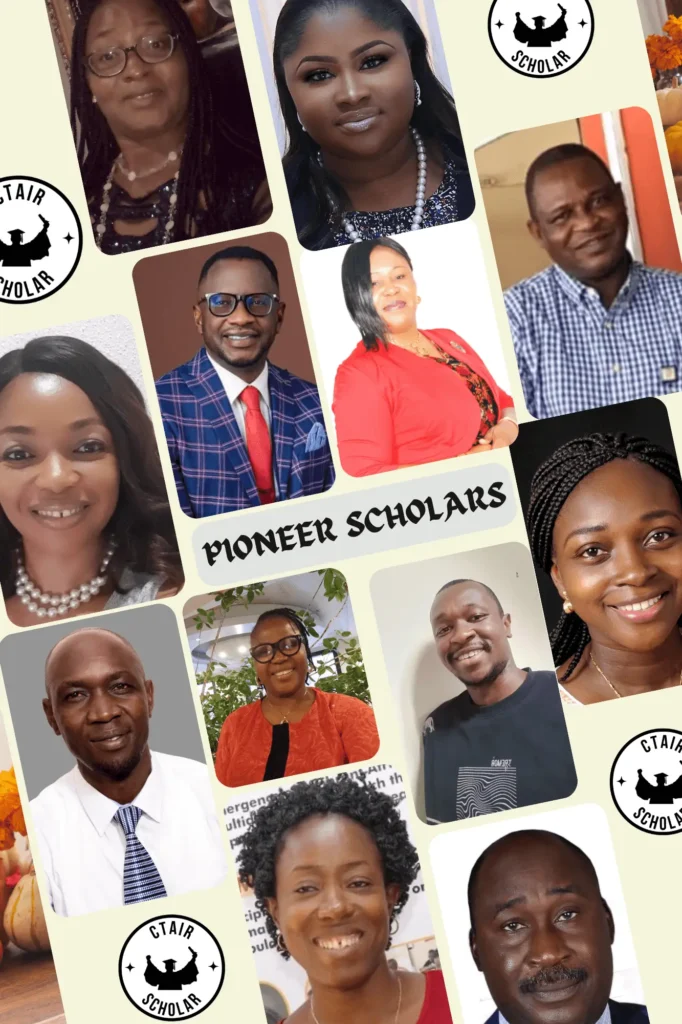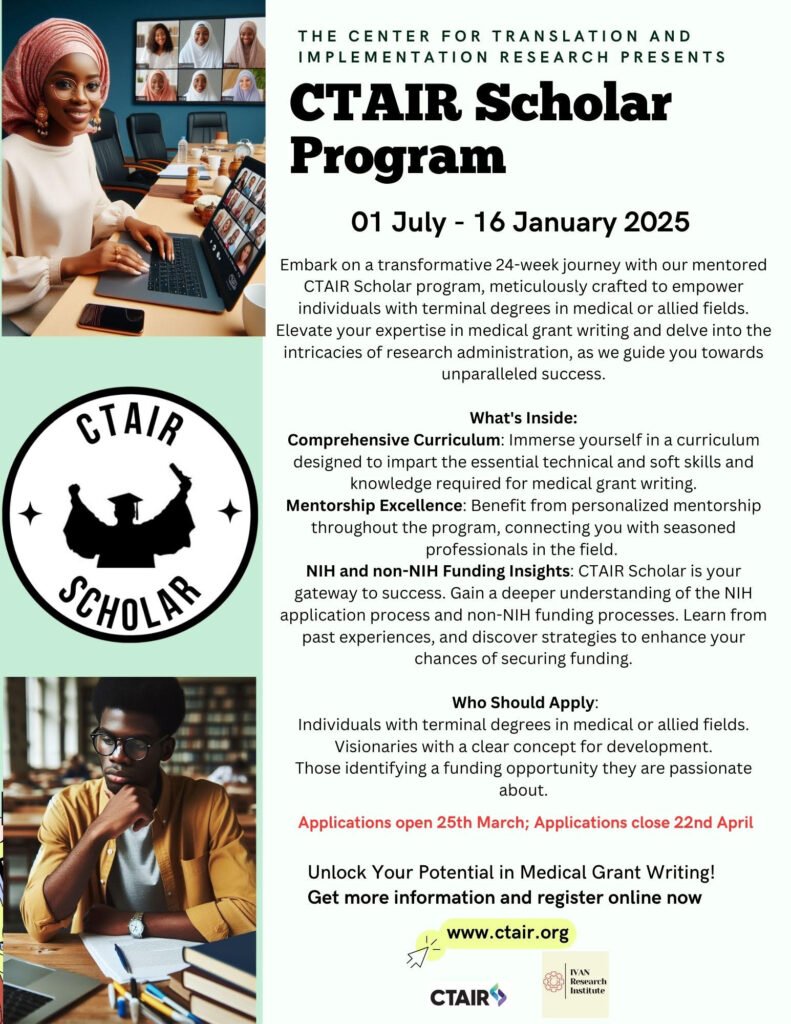
The CTAIR Scholar Program is a transformative 24-week journey meticulously crafted to empower individuals with expertise in medical grant writing and into the intricacies of research administration, using a comprehensive curriculum aimed at imparting essential technical and soft skills required for medical grant writing. Scholar trainees are tutored on grants opportunities from the National Institutes of Health (NIH) of the United States and non-NIH funding opportunities. Additionally, scholars benefit from personalized mentorship, connecting them with seasoned professionals in the field. The program also provides insights into funding processes, offering strategies to enhance funding success based on past experiences. Also, the CTAIR Scholar Program has a one-week in-person workshop at the IVAN Research Institute on science communication, soft skills and implementation science research.
The IVAN Research Institute launched this program through the Center for Translation and Implementation Research (CTAIR) in response to a recognized gap among investigators in research and proposal development. Its primary objective is to equip researchers with the skills and confidence needed to effectively submit grants. Through hands-on training and mentoring, participants gain valuable insights into proposal development, grantsmanship, and related writing. In 2023, 37 scholars applied for the program, from which 25 were chosen based on specific criteria, with 12 ultimately completing the pioneer class and 2 scholars successfully submitting their grant applications. The training utilized virtual learning techniques and a customized curriculum to suit the scholars’ requirements. Upon successful fulfillment of the program, participants were awarded certificates recognizing their accomplishment in completing the 2023 CTAIR Scholar Program, centered on research grant proposal development. For the 2024 session, over 100 applications from within and outside Nigeria were received and following a rigorous screening exercise, 25 applicants have been chosen to form the 2nd cohort of the program
